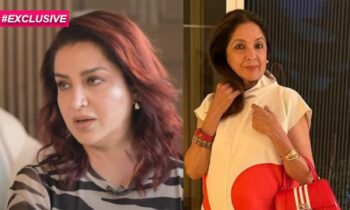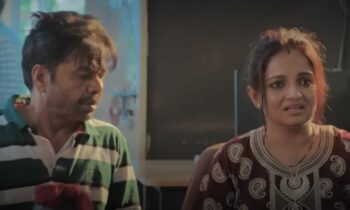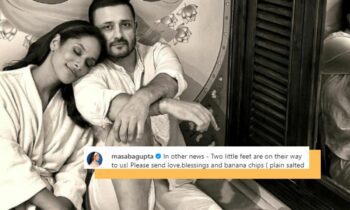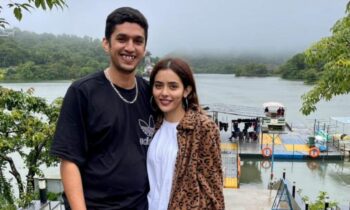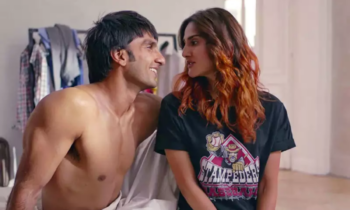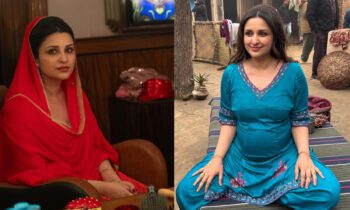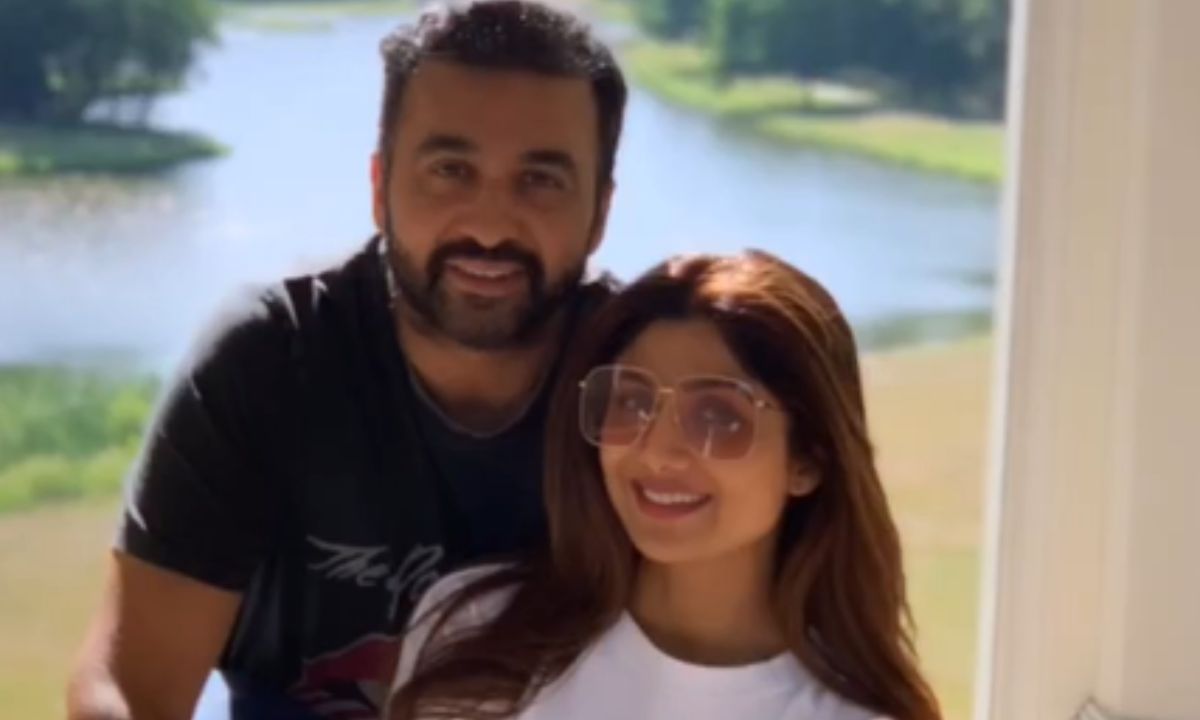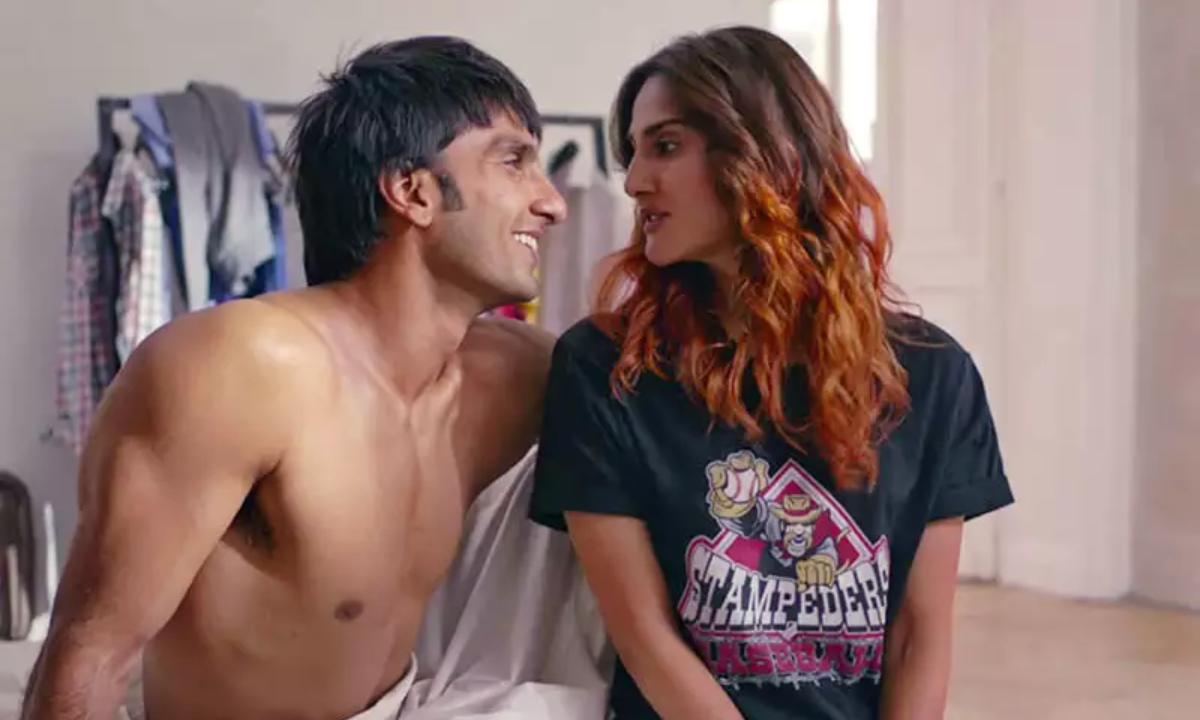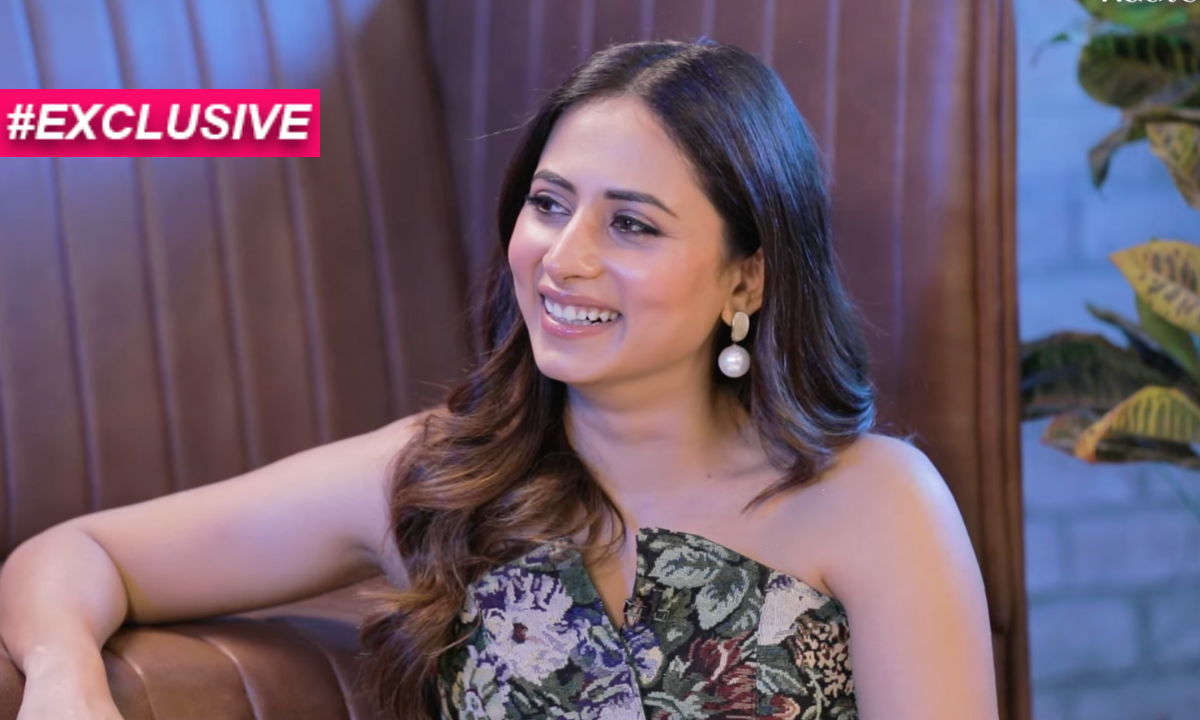Exclusive: Shriya Pilgaonkar On Her Mini Film School Experience While Shooting The Gone Game During Lockdown
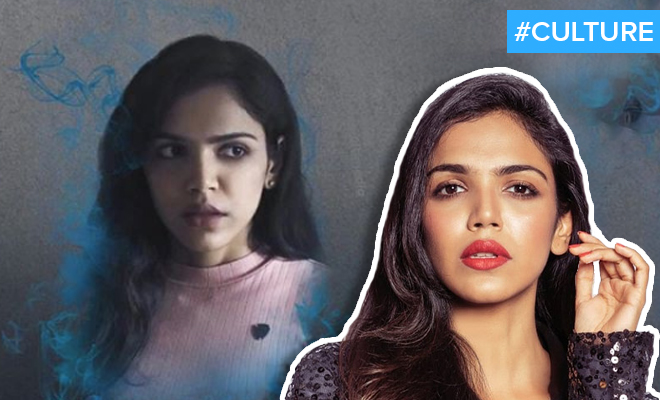
Now that the country is in unlock mode, with permissions granted for shoots, the window for creating uniquely pandemic driven content is rapidly closing. In these five months, we’ve seen everything, from an enchanting music video shot by Taylor Swift to a PSA shot by Bollywood actors in their own homes and even a short film like The Relationship Manager starring Annup Sonii and Divya Dutta. Joining this list is Voot Select’s latest offering The Gone Game, a series with the COVID-19 pandemic as a key theme and shot entirely during the lockdown at the actors’ individual homes. It stars Sanjay Kapoor, Arjun Mathur, Shweta Tripathi Sharma, Rukhsar Rehman, Lubna Salim, Indraneil Sengupta, and Dibyendu Bhattacharya, and is directed by Nikhil Bhat.
https://www.instagram.com/p/CEG-AvcJApC/?utm_source=ig_web_copy_link
Earlier, we spoke to Shweta Tripathi Sharma about her experience of shooting during the lockdown. After all, we’re all curious to know what an actor’s work from home would look like, right? But you know, not everyone’s work-from-home experience is the same.
Also Read: Exclusive: Shweta Tripathi Sharma On Shooting ‘The Gone Game’ At Home And Lockdown Life With Husband, Rapper Slow Cheeta
In another yet another exclusive chat with us, Ekulti Ek, Fan, Mirzapur, House Arrest and now The Gone Game‘s Shriya Pilgaonkar talks to us about her she tackled this novel project of not just acting but also shooting from home. Shriya is a woman of many talents, having not just acted on stage and screen but also directed and produced short films like The Painted Signal. And yet, was shooting in a lockdown minus costars and a set, and instructions over video calls, a tough one? We spoke to Shriya about shooting the series, which she describes as almost a mini film-school experience, her parents, Supriya and Sachin Pilgaonkar, and how she agrees that OTT can help artists and content reinvent itself, during a time like this one.
Q: Tell us about how The Gone Game happened to you?
A: I was approached for The Gone Game in April, and at that point, there was a lot of uncertainty. We had no idea when we’d get back to set. But I really enjoyed reading the story and I thought that all the characters were extremely relatable. We’ve seen extremes of human behaviour in this pandemic, and I thought, besides the element of thrill in the story, every character was well-layered.
My initial instinct was just curiosity and excitement about this story that was set against the backdrop of a pandemic. I thought it was incredibly ambitious to think we could pull off a full-fledged series while shooting remotely. I knew it wouldn’t be easy but I had full faith in my cast and director.
https://www.instagram.com/p/CEBQhoXF2Ex/?utm_source=ig_web_copy_link
Q: How did you shoot your scenes at home?
A: I shot the portions that required me to speak to a character on a video call. A friend, Swapnil, who lives in my building, helped me shoot some of it. And then, our DOP [Director of Photography], Piyush Puty, helped us shoot some of the objective shots. I think the camera movement was extremely important, because [The Gone Game] is a thriller, and it was important for that aesthetic to be uniform throughout the show.
https://www.instagram.com/p/CET_jlgpstx/?utm_source=ig_web_copy_link
We were also giving some workshops on Filmic Pro, which is an app that was really nice to use. We also used the DSLR. I’ve always been curious about the process of filmmaking, and it’s something that has genuinely excited me. I’m always wanting to learn different aspects of it. I got to learn something new about lighting, a little bit about camera movement. So it was like a mini film-school experience.
Q: Is it weird not being on a set and having a director, your co-stars, and a crew around?
A: To be honest, shooting without your director and co-actors was the most challenging part. Because as actors, we thrive on that give-and-take, and that energy and chemistry between you and your co-actor. Here, the challenge was that we were being directed on Zoom. Having said that, I think once the rhythm was set, we got used to it. All my cues were given to me by Nikhil, our director, through the computer. Thankfully, because he had done individual readings with every cast member, he got a sense of the tonality, the sort of pauses the actor would take. And we just had to trust that he was guiding us properly.
I think we somewhere had to surrender ourselves to this, because we had no way of getting a sense of how two actors were going to play out a scene. Which is why, when we all eventually watched the show, we were so proud that all those beats seemed to be working really well even though the actors were not talking to each other.
I think we all got a good sense of our characters, and a lot of prep went into it, and that eventually helped. But yes, I did miss having that exchange of energies on a proper set!
https://www.instagram.com/p/CEE242cFldo/?utm_source=ig_web_copy_link
Q: A lot of people have been enjoying this lockdown-induced ‘work from home’. Is it inconvenient for actors though?
A: I am a homebody; I like to stay at home. It’s something I am comfortable with. But work from home was something new for me, in this particular manner. It’s extremely challenging working from home as an actor. I was doing my hair and makeup, I was managing my art [direction]. I was doing a bit of production at home. When you’re taking on so many different roles, you are like a one-man army, and there is an increased sense of responsibility. So, somewhere you have to first disconnect from being the actor, do all the other parts, and then switch on again to being an actor. I think that transition is important to focus on everything.
https://www.instagram.com/p/CCcpgiQFy1_/?utm_source=ig_web_copy_link
I wouldn’t call these aspects ‘inconvenience’. In fact, it made me value all those people much more who contribute to the process of filmmaking. We know these things but only when you’re in a particular spot, doing all these tasks yourself, when you realise that for actors to give one scene perfectly, there are so many elements and people doing their jobs perfectly well. So I really enjoyed it, even though it was taxing at times to do everything.
I guess I was just happy about getting the opportunity to work at a time when unfortunately a lot of people lost their jobs and had to go back home. With that kind of uncertainty lurking around, when you know you have a chance to creatively engage yourself, you feel so much gratitude that you don’t see these things as inconveniences.
The only thing I would say was a big challenge for me was, because I am living with family, I had to make sure that they’re not troubled. I had to tell everybody to hush up and go to their rooms! before my shot ! It was really funny when I had to manage my dog because he would keep coming into my shot! The kitchen shots were quite difficult. I had to make sure everybody, including our help, was outside. We had to time our shots so they wouldn’t interfere with meals. People would be waiting for food and we would be shooting the kitchen shot!
But thankfully, it was only because they cooperated that I could do this.
Q: Did you parents, seasoned artists as they are, offer you their inputs and help when you were shooting?
The biggest help they gave was permission for me to shoot at home! Your home is your personal space and I was careful to not invade anybody’s privacy. I made sure that I shot only in the living room, guest room and parts of the kitchen. I didn’t want to trouble them much but they told me they would be there if I needed them! I didn’t really involve them in the shoot because I wanted them to watch it eventually and enjoy the show when it came out. But yes, Dad [Sachin] did help me with some of the cinematography bits and when I asked him something about lighting.
https://www.instagram.com/p/CD9evxPluMk/?utm_source=ig_web_copy_link
But they were just happy that there was some activity happening at home. They were excited, but they also saw how difficult this whole exercise of being directed on Zoom is and the sort of communication not always being easy and heavily reliant on good Internet. But my parents just wanted to make sure I was having fun and whatever shots we wanted, they were looking good.
Q: The Gone Game’s story is something that people are living currently. They see loved ones leave the house for treatment and there’s a fear that they might not return. Have there been any particular incidents or stories that inspired the series?
A: I don’t think there’s any one specific story or incident. It was just the general feeling in the air of fear. The anxiety was in all of us because of the unpredictability of what was happening. In the show, we’ve not just tapped that fear and anxiety but also shown how fickle our mind is at a time like this. We’ve not just built a story around the thrill of someone going missing. We’ve also played upon the fact of how people deal with grief, how they deal with their loved ones at a time like this.
The pandemic is new for us. We’re discovering things about us that we perhaps didn’t know. And the writers have incorporated all these elements in the series, and it has worked. People have written to us saying that they relate to all of that.
Q: Since the lockdown calls for innovative formats, do you think OTT has an advantage over mainstream media at this time?
A: The only option there is right now in this scenario is OTT. What’s nice is that platforms seem to be open to creative ways of shooting, to a different form of storytelling. As artists we have to keep reinventing ourselves because art is something that, through all the ups and downs, will always remain.
As actors, I think we have to find different ways to creatively engage ourselves. We’re fortunate to be living in a time where we do have these platforms. I am so happy that Voot trusted us to shoot something like this. We had done a one-day test shoot to see if we could manage it. But a project like this requires a lot of patience, and all the team members to be on the same page and wanting to give a good shot. When you’re that distant from each other, a lot can be lost in translation. But we lucked out because all of us were enthusiastic, keen to learn and open to making mistakes. Which is why, I think, we’ve come out with a good show!
Q: How has the lockdown been for you personally? Did you need a lot of motivation to keep you going and try new things?
A: I’ve always been a very positive person so I haven’t needed to do much to keep myself motivated. The biggest thing on my mind during this time has been immense gratitude. Sometimes, it takes an event like a pandemic to put your life into perspective, and you realise that the small things in life are the ones that matter. And that’s why my mind wasn’t going to what I didn’t have or what I wasn’t doing. Instead, it was going back to what I did have—I am fit and healthy. I am with my loved ones. I am safe and secure. I was holding on to all of that.
https://www.instagram.com/p/CC0LtDcFbtj/?utm_source=ig_web_copy_link
I look at these 4-5 months as a time of immense learning and self-growth. Sure, there were days of anxiety, but that’s fine. I didn’t want to be too hard on myself. There were days when I took endless naps, got back to painting or was exercising, or even trying out new things. But there were days when I wasn’t. I don’t think I went into this lockdown with a plan, it was more taking it one day at a time.
My focus was just to understand myself better, to get a birds-eye view of my life and reassess my goals. I think that’s what’s happened with most people. You’ve suddenly realised that you take a lot of things for granted and you can’t afford to do that anymore!
Q: Do you think the lockdown has affected men and women differently?
A: I don’t think of it like that. I feel that the experience of a lockdown during a pandemic is new for everyone. Having said that, coming from a privileged space, yes, of course, we would respond to things differently vis-à-vis someone who is not. I know that the cases of domestic violence have increased exponentially during this time. So it must have affected a lot of women in a different way. Not in every household do men and women share their chores. But I wouldn’t speak about it in terms of gender, because it has been such a unique experience for everybody and everyone has taken time to understand and find themselves during this lockdown.
The Gone Game is currently streaming on Voot and has been garnering positive reviews from its audience over the format in which it has been shot. Evidently, and as Shriya describes it, shooting a full-fledged series could not have been an easy task. But that fact that the actors and makers have been able to hold the audience’s attention and keep the thrill alive, is testament to thier skills and efforts!






